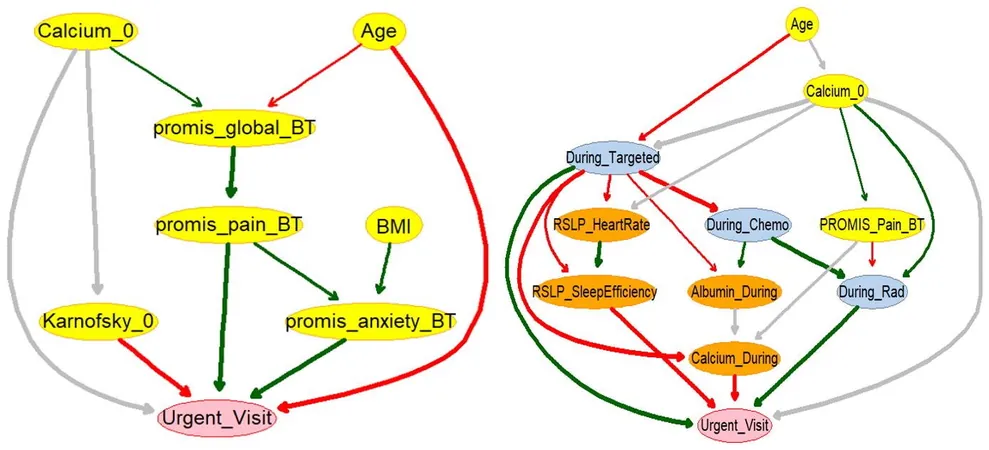
Revolutionary Machine Learning Model Could Transform Lung Cancer Care
2025-09-15
Author: Yu
Predicting Urgent Care Needs for Lung Cancer Patients
In a groundbreaking study published in JCO Clinical Cancer Informatics, researchers at Moffitt Cancer Center have unveiled a powerful machine learning model that can predict which patients with non-small cell lung cancer are most at risk of needing urgent care. This innovative approach taps into patient-reported outcomes and wearable sensor data to enhance patient care during treatment.
Understanding the Risks of Treatment Toxicities
Patients receiving systemic therapy for non-small cell lung cancer frequently encounter treatment-related toxicities, leading to unexpected trips to urgent care. The study's aim was to explore whether a more nuanced integration of health data—combining self-reported quality-of-life feedback with metrics from wearable devices like Fitbit—would yield more accurate predictions than conventional clinical and demographic information.
Cutting-Edge Technology at Work
The team employed explainable machine learning techniques known as Bayesian Networks to develop their predictive models, which were tested on a cohort of 58 patients monitored through wearable devices and surveyed via structured questionnaires. Notably, models that incorporated both patient-reported outcomes and sensor data significantly surpassed those based solely on clinical data in distinguishing high-risk patients.
Enhancing Patient Care Through Early Intervention
"By combining patients' symptom information with real-time tracking from wearable devices, we can more accurately pinpoint those at greatest risk for complications," stated Brian D. Gonzalez, Ph.D., the study’s lead author. "Our aim is to equip clinicians with tools for early intervention, enhancing patient experiences and possibly preventing hospitalizations."
Future Implications for Cancer Treatment
The research indicates that integrating diverse data into machine learning models could significantly personalize cancer care, allowing healthcare providers to proactively manage treatment-related toxicities before they worsen. Although the study was limited to one center and a smaller patient sample, the researchers believe this method shows great potential for wider application.
The Power of Transparency in AI Predictions
"The strength of this approach lies not only in its predictive accuracy but also in the transparency it offers," explained Yi Luo, Ph.D., co-author and a researcher in Moffitt's Department of Machine Learning. "By employing explainable machine learning, we can clarify how factors like symptom reports, sleep quality, and lab results interact, which is essential for building trust between clinicians and ensuring the models can enhance real-world decision-making in cancer care."


 Brasil (PT)
Brasil (PT)
 Canada (EN)
Canada (EN)
 Chile (ES)
Chile (ES)
 Česko (CS)
Česko (CS)
 대한민국 (KO)
대한민국 (KO)
 España (ES)
España (ES)
 France (FR)
France (FR)
 Hong Kong (EN)
Hong Kong (EN)
 Italia (IT)
Italia (IT)
 日本 (JA)
日本 (JA)
 Magyarország (HU)
Magyarország (HU)
 Norge (NO)
Norge (NO)
 Polska (PL)
Polska (PL)
 Schweiz (DE)
Schweiz (DE)
 Singapore (EN)
Singapore (EN)
 Sverige (SV)
Sverige (SV)
 Suomi (FI)
Suomi (FI)
 Türkiye (TR)
Türkiye (TR)
 الإمارات العربية المتحدة (AR)
الإمارات العربية المتحدة (AR)